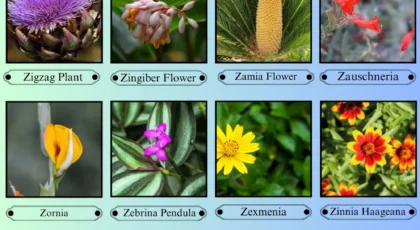Rabbits surely look adorable with their big eyes and playful antics. But wait—
Did you know they are the second most destructive garden pests after deer?
If you’re a gardener, you already know how rabbits can be a nightmare for your garden. You put in all your effort and care to build a beautiful garden, patiently waiting for vegetables to grow or flowers to bloom. And then one morning, you wake up to find rabbits have already ruined everything. Only frustration is left for you.
Rabbits don’t just damage vegetables and flowers—they also chew on shrubs and woody trees. Basically, they make your lawn their home and munch on everything they find.
So, what control measures should you take to protect your garden?
Let’s learn how to keep rabbits out of garden.
10 Effective Ways to Keep Rabbits Out of Garden
- Environmental Control Measures
1. Install Fencing or Physical Barriers
Fencing is the first protective measure that you should take to keep rabbits out of the garden. And, in this case, forget picket fencing—you must go for hardware cloth fencing or 1-inch mesh chicken wire fencing. Chicken wire fencing can offer an effective physical barrier between rabbits and your garden if you maintain the right height and depth for the fence. A 4-feet high fence would work well to prevent rabbits from climbing and reaching over the garden. Also, you must install at least a 6-inch deep fence to stop the digging rabbits from burrowing into the ground to enter your garden. Rabbits can also nibble on the wire barriers, so you must check your garden barriers for holes and nibbling signs on a regular basis before they damage your garden.
2. Identify and Eliminate Rabbit Nests
If you have ever experienced damage to your garden by rabbits, that means they simply live nearby your garden or inside your garden. A rabbit group may have over 10 baby rabbits. They would not travel a long distance with all these babies to attack your garden. So, you have to find potential spots that can be rabbit nests. Sometimes, we leave something in the garden, or grassy areas, or overgrown green plants that can become perfect nesting spots for rabbits. You have to identify those potential rabbit nesting spots inside your garden as well as in nearby areas and then remove them to keep rabbits out of your garden.
3. Raise Your Garden beds
If you are growing vegetables like spinach, broccoli, or carrots in your garden, raising the vegetable bed is an excellent way to protect them from rabbits. However, the bed must be high enough so that rabbits cannot hop into it. This method works well because it provides no space for rabbits to build nests.
4. Focus on Habitat Control
Habitat control means cutting off the food sources of rabbits so that they get less to eat. Rabbits live on taller weeds, brush, and junk food. If you cut all the taller weeds and remove debris—including junk food and brush—from your garden, they won’t find enough food to survive. So, why would they enter your garden unless they just want to dance in your backyard?
- Plant-based Preventions
5. Protect Plants Individually
For smaller fruit and flower plants, you can install an individual barrier around them using plant cages or chicken wire fencing. This protection measure is especially effective during the winter season to shield smaller trees and larger shrubs. However, you should choose the right height for the plant cages so that the thick layer of snow in winter does not create a path for the rabbits.
6. Grow Rabbit-Resistant Plants
Like us, rabbits also have preferences when it comes to food. While they love to chew on certain vegetables, flowers, and shrubs, they don’t like the strong scents of certain plants like garlic, basil, hot peppers, mint, spicy basil, and rhubarb. If you grow these rabbit-resistant plants in your garden, you might be able to keep rabbits away. While parent rabbits are smart enough to pick the right food for themselves, baby rabbits may mistakenly eat these plants and fall ill. You have to recognize the plants that rabbits don’t like and go through the trial and error process to understand what goes well for you.
- Scare Tactics and Defense Measures
7. Spray Homemade Repellents
You will find different types of repellent sprays in the market or online that will keep rabbits out of your garden without harming your plants and pets. However, I would recommend using a homemade spray for two main reasons:
a. You can avoid using harmful chemicals in the mixture, and
b. You know whether the ingredients are poisonous to plants and pets or not, and can take measures accordingly.
If you’d like to prepare your own mixture, here’s a simple recipe:
i) 2 tablespoons of garlic powder
ii) 2 tablespoons of cayenne pepper
iii) 2 tablespoons of vinegar
iv) 500 ml water
Mix the ingredients well in the water and pour the mixture into a spray bottle. Then, shake the bottle and spray the repellent on plants that rabbits like to eat. Rabbits won’t like the smell of this mixture.
8. Encourage predators
If you have pets like dogs and cats, they can deter rabbits and protect your garden. You can encourage your pets to become your garden protector. However, if you don’t have any pets, you can still trick the rabbits like you have. For that, you have to collect hairs from cats or dogs from a local groomer and then stuff it into a burlap bag and place the bag near your garden. When rabbits smell the scent of predators, they will run away.
9. Use Scare Devices like Mirror
Mirrors create reflective images, and when rabbits see themselves in the mirror, they will be afraid. Therefore, you can place small mirrors at different places in your garden to scare them off. You can also use other reflective objects like aluminum foil or old CDs to create light flashes that startle rabbits.
10. Use Rabbit Traps
If you want to catch the rabbits and release them miles away from your garden, you can use live traps. You can purchase a rabbit trap from a hardware store or garden center, and then place it in an area where rabbits roam frequently. To bait the rabbits, you can attach carrots, apple slices, lettuce, or cabbage to the trap—especially during the summer and spring months. Avoid placing the trap under direct sunlight, as it might cause distress to the trapped animal. Once the rabbit is successfully trapped, you can carefully transport it and release it in a safe area far from your garden.
Frequently Asked Questions:
No, rabbits don’t like strong scented plants like garlic, spicy basil, rhuburb, and mint.
Apart from trapping, there are different ways to keep rabbits out of your garden, such as fencing, habitat control, repellent sprays, raising garden beds, and scaring them off.
Yes, usually homemade sprays consist of natural ingredients that are safe for your pets and plants.




